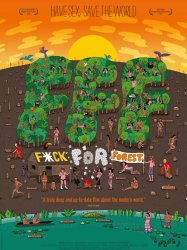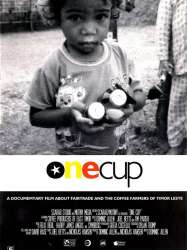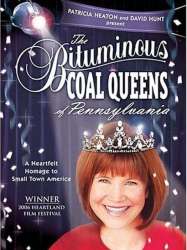Journey to the End of Coal is a french film of genre Documentary
Journey to the End of Coal (2008)

If you like this film, let us know!
- Infos
- Casting
- Technical infos
- Photos
- Videos
- Film quotes
- Characters
- Music
- Awards
OriginFrance
Genres Documentary
Journey to the End of Coal is a French web documentary directed by Samuel Bollendorff and Abel Segretin.
Based on the choose your own adventure principle, the interactive documentary tells the story of millions of Chinese coal miners who are risking their lives to satisfy their country’s appetite for economic growth.
Comments
Leave comment :
Suggestions of similar film to Journey to the End of Coal
There are 8965 with the same cinematographic genres, 1248 films with the same themes (including 93 films with the same 3 themes than Journey to the End of Coal), to have finally 70 suggestions of similar films.If you liked Journey to the End of Coal, you will probably like those similar films :

Let It Be (2005)
Origin Taiwan
Genres Documentary
Themes Environmental films, Documentary films about business, Documentary films about environmental issues
Rating68%





This documentary records the lives of several old farmers (peasants) in Chheⁿ-liâu Village, Āu-piah (i.e., Houbi Township), Tainan County (now part of Tainan City). It generated discussion and debate in the Taiwanese civil society about the impact on agriculture due to its membership in the World Trade Organization.

Voices of Transition (2012)
, 1h5Origin France
Genres Documentary
Themes Environmental films, La mondialisation, Films about the labor movement, Documentary films about business, Documentary films about environmental issues, Documentary films about technology, Documentaire sur le monde du travail, Disaster films
Rating75%





Using interviews and overlays of graphics and text, the film presents the current problems facing industrial agriculture. It explores why in the interviewees' view the current industrial model is not up to the task of feeding the world's people. According to the film every calorie of energy contained in a food source currently takes between 10 and 20 calories of crude oil in the production of fertilizers and transportation to produce, leading to a strong dependence of the cost of food on oil prices. As a result of peak oil and increasing oil prices this dependence will lead to ever increasing food prices. According to the film, this dependence already represents a significant weak-spot in the global food supply chain. Additionally, agriculture is already responsible for 40% of greenhouse gas emissions, contributing to climate change. Furthermore, the film argues that the overuse of inorganic fertilizers has been responsible for the loss of soil fertility and threatens the complete loss of usable soil within the next decades through soil erosion and sinking crop yields. These effects, according to the film, can only be partly mitigated by the increased use of those same fertilizers. The loss of workplaces, the concentration of land in the hands of a few (allegedly a farm closes every 23 minutes in France) as well as the dependence on large corporations are enumerated as side effects of the industrialisation of agriculture since the 1920s. Companies, such as Monsanto and Bayer, control everything from seed stock to fertilizers and the necessary chemical mixes for hybrid plants, thereby controlling the entire supply chain. The film argues that this development was supported through subsidies from the World Bank. Interviews with Vandana Shiva, the founder of the Transition Towns movement Rob Hopkins and various agricultural experts serve to argue this viewpoint. The dependence on crude oil is illustrated through the example of the wholesale food market in Rungis.

Fuck for Forest (2012)
Genres Drama, Documentary
Themes Environmental films, Films about sexuality, Films about pornography, Documentary films about business, Documentary films about the film industry, Documentary films about environmental issues, Documentary films about nature
Rating52%





The documentary follows Fuck for Forest, or FFF, a non-profit environmental organization founded in 2004 in Norway by Leona Johansson and Tommy Hol Ellingsen, which raises money for rescuing the world's rainforests by producing pornographic material or having sex in public.

One Cup (2006)
, 28minutesGenres Documentary
Themes Environmental films, Documentary films about business, Documentary films about environmental issues
 , 1h29
, 1h29Origin USA
Genres Documentary
Themes Environmental films, Documentary films about business, Documentary films about environmental issues, Documentary films about technology
Rating73%






Butte, America (2008)
, 1h7Origin USA
Genres Documentary
Themes Environmental films, Documentary films about business, Documentary films about environmental issues, Documentary films about historical events
Rating66%






Blood in the Mobile (2010)
Origin Danemark
Genres Documentary
Themes Environmental films, Documentary films about business, Documentary films about environmental issues
Rating70%






Mine Your Own Business (2006)
Directed by Phelim McAleer, Ann McElhinney
Origin USA
Genres Documentary
Themes Environmental films, Documentary films about business, Documentary films about environmental issues
Actors Phelim McAleer
Rating60%






After Winter, Spring (2015)
, 1h15Genres Documentary
Themes Environmental films, Documentary films about business, Documentary films about environmental issues
Rating67%





 , 1h29
, 1h29Directed by David Hunt
Origin USA
Genres Documentary
Themes Environmental films, Documentary films about business, Documentary films about environmental issues, Documentary films about technology
Actors Fabian Forte
Rating69%





 Connection
Connection